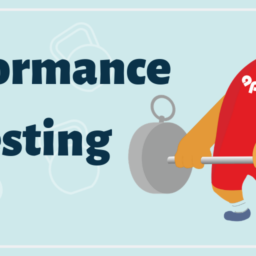Performance testing is a set of practices where testers simulate end-user load to check the app’s speed and stability. These test results are evaluated on certain metrics to identify all bottlenecks to performance. However, performance engineering is a concept where various activities are performed throughout the software development life cycle (SDLC) to help meet performance requirements. A performance testing company offers both performance testing and engineering services.
Performance Testers
People assume that a few years of experience as a performance tester can easily lead you to a performance engineer. Well, that’s not the case. It requires more knowledge than what a performance tester has. A performance tester usually have knowledge about performance metrics and performance monitoring concepts across different applications. They conduct load tests to check a system’s performance, stability and scalability, and then share reports with the developers to work on it. This is where a performance tester job ends, but it does not end for a performance engineer.
Performance Engineering
On the contrary, a performance engineer looks into the root cause of the performance issues, and find all possible solutions and optimize the system until the issues are resolved and the performance parameters are met. So, performance testing is considered a part of performance engineering, but they differ from each other. To have a look at more about the difference between the two, you can read more in our article here:
Four Traits of a Good Performance Engineer
When a performance testing company hires a performance engineer, they look for the following traits and capabilities in the cadidates:
- Scalable Loads:
A good performance engineer takes all the possibilities into account. For instance, in an online shopping portal, if there is a load test for 1000 simultaneous transactions, an engineer should consider both scenarios where the transactions occurring for different products or when they are occurring for the same product. It is important to check if your system can withstand the required load.
- Sustainable Load Tests:
It is essential that the results of the tests are sustainable over a defined period of time. The system should perform all actions without crashing. Performance engineers carry out load tests for 30 minutes approximately, to detect new performance changes.
- Set Benchmarks:
A good performance engineer should be able to set suitable and achievable benchmarks, whether it is for normal days or during the holiday season. A benchmark is a point of reference based on which testers can compare and assess the performance of a system.
- Understand User Behaviours:
It is not possible to design effective load tests if engineers do not have an understanding of user reactions in different situations. A good performance engineer understands user demographics, and how users would interact with the system in various situations.
The above skills are important to make an exceptional performance engineer. A performance testing company should be far-sighted. They should be able to see beyond what to expect from performance testers. Performance engineering requires a lot of technical expertise and also non-technical skills including problem-solving and attention to details.


